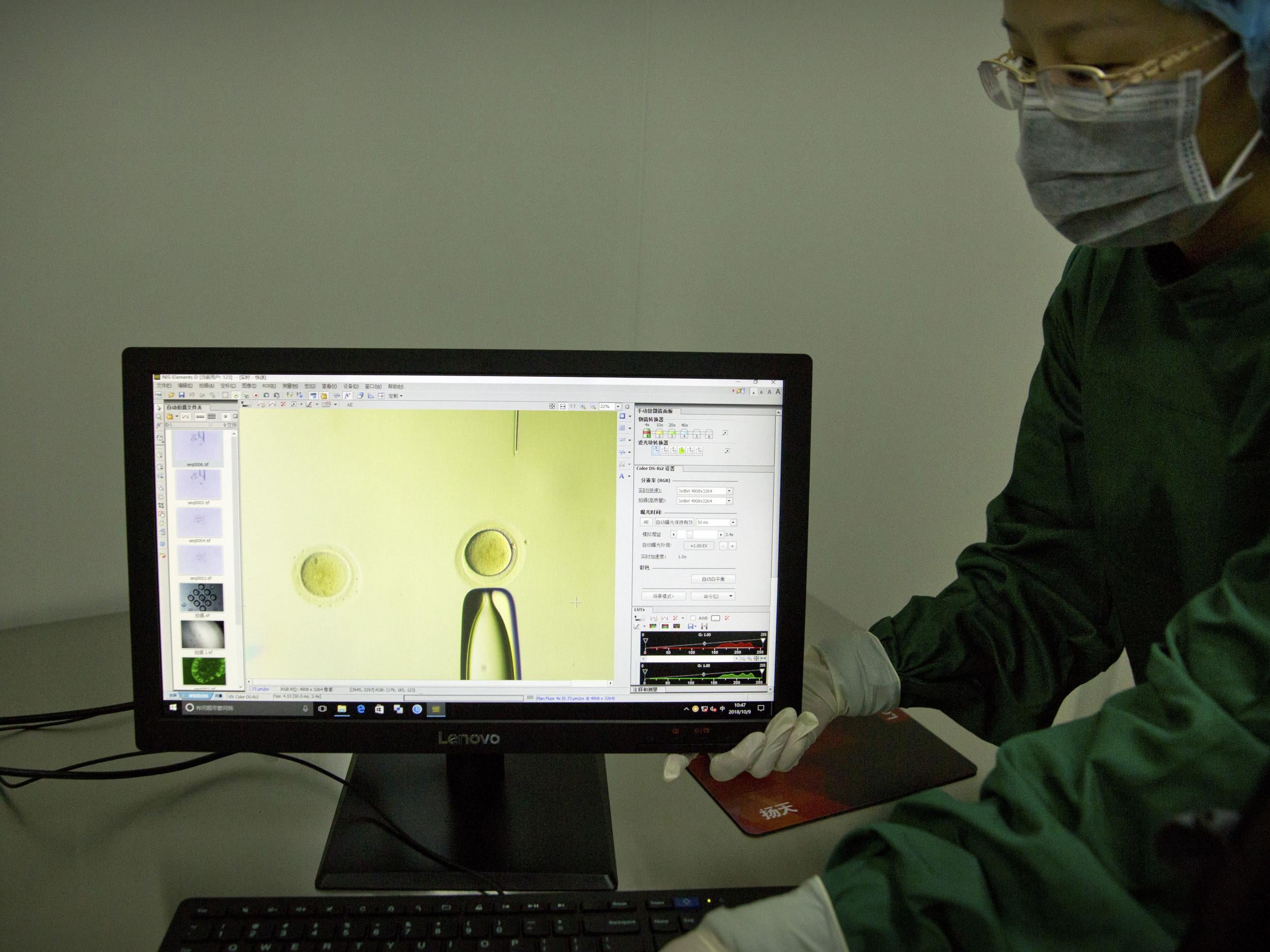Claims of genetically altered babies must be treated with caution
Analysis: A Chinese team say they have produced the world’s first gene-edited babies, but with evidence thin on the ground Josh Gabbatiss says we should remain sceptical about such announcements


Early on Monday morning, reports began circulating of a major breakthrough in China. Thanks to the marvels of gene editing, twin girls had apparently been born with a fantastic superpower: they were naturally resistant to HIV.
Depending on your position this result may sound either hugely exciting or downright terrifying. Gene editing (and “designer babies”) is a fascinating frontier in scientific research, but one with unpleasant echoes of the horrors of eugenics and the dystopian vision of Aldous Huxley’s Brave New World.
However, despite the earnest interviews in which Professor He Jiankui and his collaborators described their work, for now their claims must be taken with a big fistful of salt.
The scientists say the babies created by their experiments have had their genomes tweaked so that they cannot contract HIV, although only in one of the twins did the procedure provide full protection by altering both copies of the target gene. Their seemingly noble goal was to produce children who were not affected by this life-changing disease, which afflicts nearly 37 million people around the world.
However, without publication in an academic journal and the resulting scientific scrutiny, we should perhaps withhold judgement on the veracity of their claims.
Indeed, controversial fields like gene editing and cloning have a long history of attracting charlatans and egotists who are happy to make bold statements that later turn out to be unsupported by scientific evidence.
Chief among these is the South Korean researcher Hwang Woo-suk. Once considered a pioneer in stem cell research, he suffered a spectacular fall from grace in 2005 when it emerged that he had faked the creation of the world’s first cloned human embryos.
Other self-styled mavericks who have courted the press while failing to back up their claims with data include Severino Antinori, who made wild claims about his success in cloning humans, and infamous “head transplant” pioneer Sergio Canavero.
The response of the scientific community to the Chinese team’s experiment was swift, and fairly unified in consigning Professor He to the same category as these self-styled mavericks. While a few tentatively welcomed the results, with caveats, most described the announcement as “irresponsible” and “designed to provoke maximum controversy and shock value” while evidence of the team’s positive results remained (for now) non-existent.
That does not mean that the experiments belong in the realm of science fiction, however. Gene editing undeniably can be carried out on humans and human embryos. Only last year a team from the Francis Crick Institute in London altered human embryos for the first time in the UK, but crucially these cells were confined to a laboratory – they were not implanted into surrogate mothers.
By contrast, China has emerged as something of a wild west when it comes to gene editing. Unhampered by ethical restrictions that are preventing researchers in Europe and the US ploughing ahead with this science, Chinese scientists are the ones leading the way (for good or ill).
There are reports of dozens of cancer and HIV patients in Chinese hospitals having their cells genetically engineered, and in this context the birth of these twins seems like an inevitable next logical step. The problem is that while gene editing tools have proved a fantastic scientific innovation, scientists are still not able to control them well enough to guarantee safety. Some have suggested they could be used to treat untreatable genetic diseases for which no other options are available, but HIV – with a wealth of preventative measures and drugs for treatment – is not one of them.
It remains to be seen whether Professor He’s claims have any basis whatsoever, but with so many unknowns about the long-term impacts and side effects of this technology, there will be plenty who say his claims (and his actions) are morally questionable either way.
Join our commenting forum
Join thought-provoking conversations, follow other Independent readers and see their replies
Comments